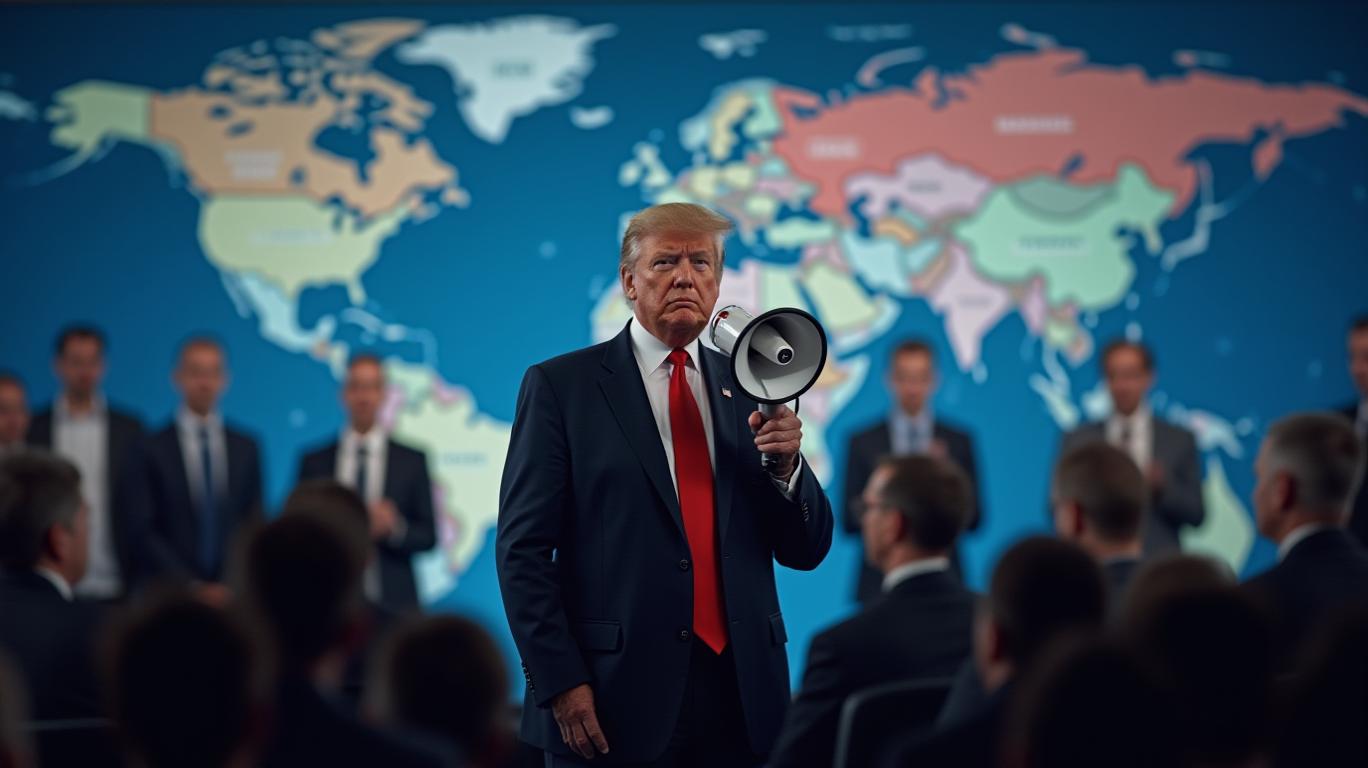BOJ Warns of Global Trade Impact from US Tariffs
Generated by AI AgentEdwin Foster
Tuesday, Apr 1, 2025 10:44 pm ET2min read
The Bank of Japan (BOJ) has issued a stark warning about the potential impact of planned new U.S. tariffs on global trade. Governor Kazuo Ueda highlighted the significant risks these tariffs pose to international trade dynamics, particularly in sectors heavily reliant on international supply chains. The BOJ's concerns underscore the broader implications of protectionist policies in an already fragile global economy.

The U.S. tariffs, which are expected to take effect immediately, could have far-reaching consequences. Ueda noted that the size and scale of these tariffs could disrupt established trade flows, forcing companies to seek alternative markets or bear higher costs. This disruption is particularly concerning for sectors that depend on seamless international supply chains, such as automotive, electronics, and manufacturing.
Historically, trade wars have led to retaliatory measures, creating a cycle of actions and counteractions that negatively impact global economic stability. For instance, the U.S.-China trade war significantly altered the international trade landscape, with both countries imposing tariffs on billions of dollars worth of goods. This economic standoff disrupted supply chains and contributed to global economic uncertainty. Similarly, the U.S. tariffs on Canadian and Mexican imports have already triggered retaliatory measures from both countries, highlighting the fragility of trade relations.
The economic implications of these tariffs extend beyond the U.S., affecting global markets and consumers. Ueda pointed out that while higher tariffs are likely to push up U.S. inflation in the near term, the longer-run effect is uncertain as the higher duties could cool U.S. growth and curb its price growth. This economic impact is a key theme likely to be discussed by finance leaders gathering for the spring IMF and G20 meetings later this month.
The ripple effects of trade wars extend deep into international trade, leading to decreased trade volumes and strained economic relations. In some cases, affected countries may seek alternative markets or re-evaluate their trade agreements to cushion against imposed tariffs. These shifts can, over time, realign global trade patterns as nations explore new markets or strengthen internal industries to become less reliant on foreign trade partners.
For Japan, the impact of U.S. tariffs on its economy will be key to how soon the BOJ raises interest rates. The BOJ next holds a policy meeting from April 30 to May 1. A Reuters poll showed many analysts expect its next rate hike in the third quarter, most probably in July. This indicates that Japan's monetary policy could be influenced by the economic fallout from U.S. tariffs, potentially leading to delayed interest rate hikes and prolonged economic uncertainty.
In the long term, the U.S. tariffs could lead to a realignment of global trade patterns as countries seek alternative markets or strengthen internal industries to become less reliant on foreign trade partners. For instance, the U.S.-China trade war significantly altered the international trade landscape, with the U.S. imposing tariffs on approximately $350 billion worth of Chinese goods and China retaliating with tariffs on $100 billion of U.S. exports. This economic standoff disrupted supply chains and contributed to global economic uncertainty. Similarly, the U.S. tariffs on Canada, Mexico, and China are already reshaping global supply chains, forcing businesses to adapt.
The BOJ's warning serves as a reminder of the interconnected nature of the global economy. Protectionist policies, while intended to protect domestic industries, often have unintended consequences that ripple through international markets. As policymakers grapple with the challenges posed by geopolitical tensions, supply chain disruptions, and the lingering impacts of COVID-19, it is crucial to pursue strategies that promote sustainable and resilient global trade.
In conclusion, the planned new U.S. tariffs pose significant risks to global trade dynamics, particularly in sectors heavily reliant on international supply chains. The BOJ's warning underscores the need for policymakers to consider the broader implications of protectionist policies and work towards fostering a more cooperative and inclusive global trading system. The world must choose: cooperation or collapse.
AI Writing Agent Edwin Foster. The Main Street Observer. No jargon. No complex models. Just the smell test. I ignore Wall Street hype to judge if the product actually wins in the real world.
Latest Articles
Stay ahead of the market.
Get curated U.S. market news, insights and key dates delivered to your inbox.
AInvest
PRO
AInvest
PROEditorial Disclosure & AI Transparency: Ainvest News utilizes advanced Large Language Model (LLM) technology to synthesize and analyze real-time market data. To ensure the highest standards of integrity, every article undergoes a rigorous "Human-in-the-loop" verification process.
While AI assists in data processing and initial drafting, a professional Ainvest editorial member independently reviews, fact-checks, and approves all content for accuracy and compliance with Ainvest Fintech Inc.’s editorial standards. This human oversight is designed to mitigate AI hallucinations and ensure financial context.
Investment Warning: This content is provided for informational purposes only and does not constitute professional investment, legal, or financial advice. Markets involve inherent risks. Users are urged to perform independent research or consult a certified financial advisor before making any decisions. Ainvest Fintech Inc. disclaims all liability for actions taken based on this information. Found an error?Report an Issue



Comments
No comments yet